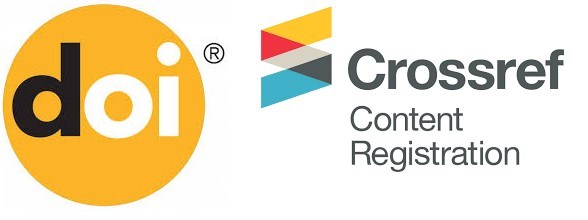Organizing Management Program Markaz Arabiyah Course In Pare Kediri
DOI:
https://doi.org/10.32699/liar.v7i1.4524Keywords:
Organizing management, Course program, Arabic language educationAbstract
This study aims to find out the keys to organizational management success at the Markaz Arabiyyah course institution which has 12 programs being implemented, as well as the constraints and solutions implemented. This research uses a qualitative approach with a case study type. Sources of data in this study are teachers, staff, and students. Data collection techniques using interviews, observation, and documentation. Data analysis techniques were carried out in three stages; presentation of data, classification of data, and drawing of conclusions. The results of this study are the organizational system implemented at the Markaz Arabiyyah course institution in the Arabic language program including division of tasks, a span of control, delegation, as well as monitoring and reorganization. The 12 Markaz Arabiyyah programs are only managed by two managers, namely the online program manager and the offline program manager. A teacher and staff recruitment system designed with scholarships provided by the institution is the key to the successful implementation of all programs. Further research that can be carried out is the application of a management system from the Markaz Arabiyyah institution elsewhere.
References
Alfan Afifi Kurniawan, Bahrul Ilmi, Nailul Authar, & Wildana Wargadinata. (2023). Pembelajaran Bahasa Arab di Indonesia: Problematika dan Solusi Prespektif Sosiokultural Vygotsky. Al-Ittijah : Jurnal Keilmuan Dan Kependidikan Bahasa Arab, 14(2), 161–174. https://doi.org/10.32678/alittijah.v14i2.7531
Arif, M. (2019). Metode Direct dalam Pembelajaran Bahasa Arab. Al-Lisan. Journal Bahasa & Pengajarannya, 4(1).
Arikunto, S. (2010). Prosedur Penelitian Suatu Pendekatan Praktik-Revisi Ke X.
Boddy, D. (2005). Management: An Introduction, 3rd Edth. In Pearson Education Limited.
Hasibuan, M. S. . (2012). Manajemen: Dasar, Pengertian, dan Masalah -Edisi Revisi. In Jakarta: Bumi Aksara.
Kahfi, A. (2020). Modul #06 pengantar manajemen. Academia, 6.
Kotler and Amstrong. (2003). DASAR - DASAR MANAJEMEN.pdf (pp. 1–273).
Miles, M., & Huberman, A. (2014). Miles and Huberman. In Qualitative Data Analysis: An expanded sourcebook.
Muttaqin, G. F. (2018). PENGARUH PENDELEGASIAN WEWENANG TERHADAP KINERJA ORGANISASI. Jurnal Riset Akuntansi Terpadu, 11(2). https://doi.org/10.35448/jrat.v11i2.4255
Nada, F. Q., Faradisa, A. S., Kholid, N., & Non-formal, P. (2022). Manajemen Pengorganisasian Program Bahasa Arab 1 Bulan di Lembaga Kursus Kampung Inggris Pendahuluan Kursus intensif dalam pembelajaran bahasa Arab merupakan jenis pendidikan nonformal sebagaimana yang disebutkan dalam Undang Undang No . 20 tahun Markaz B. 8(2), 206–217.
Rahmawati, A. D. (2018). MANAJEMEN PENGORGANISASIAN PROGRAM KURSUS BAHASA ARAB DI PARE KEDIRI. Arabi : Journal of Arabic Studies, 3(1). https://doi.org/10.24865/ajas.v3i1.71
Rindaningsih, I. (2018). Buku Ajar Administrasi Dan Supervisi Pendidikan. In Buku Ajar Administrasi Dan Supervisi Pendidikan. https://doi.org/10.21070/2018/978-602-5914-17-1
Sa’diyah, H., & Abdurahman, M. (2021). Pembelajaran Bahasa Arab di Indonesia: Penelitian Terhadap Motivasi Belajar Bahasa Asing. Lisanan Arabiya: Jurnal Pendidikan Bahasa Arab, 5(1), 51–69. https://doi.org/10.32699/liar.v5i1.1665
Syafarruddin. (2015). Manajemen Organisasi Pendidikan Perspektif Sains dan Islam. In Perdana Publishing.
Syukran, M., Agustang, A., Idkhan, A. M., & Rifdan, R. (2022). KONSEP ORGANISASI DAN PENGORGANISASIAN DALAM PERWUJUDAN KEPENTINGAN MANUSIA. Publik: Jurnal Manajemen Sumber Daya Manusia, Administrasi Dan Pelayanan Publik, 9(1). https://doi.org/10.37606/publik.v9i1.277
Umam, I., Hasin, M., & Arifa, Z. (2019). Manajemen Pengorganisasian Program Kursus Markaz Bahasa Arab Darul Lughah Waddirasat Islamiyah. An Nabighoh: Jurnal Pendidikan Dan Pembelajaran Bahasa Arab, 21(01). https://doi.org/10.32332/an-nabighoh.v21i01.1376
Downloads
Published
Issue
Section
License
Authors who publish with this journal agree to the following terms:
a. Authors retain copyright and grant the journal right of first publication with the work simultaneously licensed under a Creative Commons Attribution-ShareAlike 4.0 International License. that allows others to share the work with an acknowledgement of the work's authorship and initial publication in this journal.
b. Authors are able to enter into separate, additional contractual arrangements for the non-exclusive distribution of the journal's published version of the work (e.g., post it to an institutional repository or publish it in a book), with an acknowledgement of its initial publication in this journal.
c. Authors are permitted and encouraged to post their work online (e.g., in institutional repositories or on their website) prior to and during the submission process, as it can lead to productive exchanges, as well as earlier and greater citation of published work (See The Effect of Open Access).












